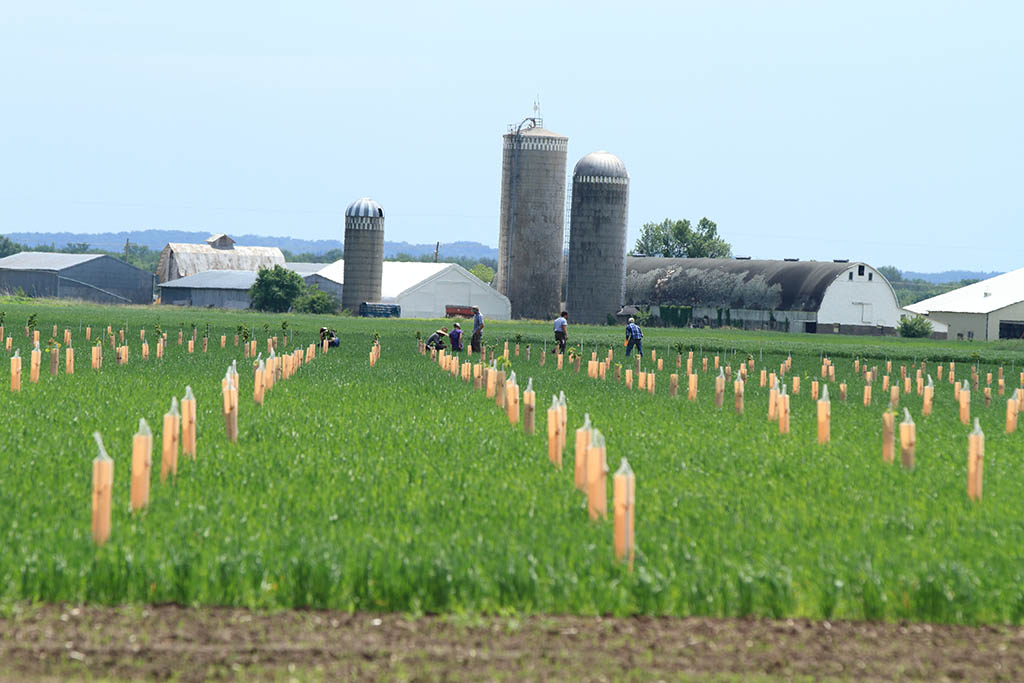
Heartnut
Juglans ailantifolia
Also known as Japanese walnuts, heartnut is quicker to bear than other nut trees. Many produce easy to shell, heart-shaped nuts on a variety of soil types.
DRAINAGE: Well-drained soils
LIGHT: Full sun
ZONES: 5–8
SPACING: 20 x 20 ft or 30 x 30 ft, thinning periodically as trees grow
YEARS TO PARTIAL/FULL BEARING: 5–10
HARVEST SEASON: September–October
Our Research
Hudson Demonstration Farm in Central Illinois integrates heartnut in a 15-acre alley cropping planting with elderberry and black currant. There are several varieties of heartnut (Japanese walnut) trees planted as a research plot, which test for cold-hardiness in USDA Zone 6a.


RESOURCE
Heartnut
- Review more basic grower information about plant selection and management.





One-On-One Support for Farm Planning
Technical Service Program
Get help planning your perennial farm system. Our Technical Service Program is here to guide you through the process of planning, funding, and planting trees on your farm.


Looking For Plants?
Canopy’s Nursery offers plant material in your region. Find chestnut, walnut, pecan, hazelnut, heartnut, persimmon, pawpaw, black currant, and elderberry for order in their online store. Not only does Canopy increase the availability of high-quality plant material in the region, it also donates part of its proceeds to Savanna Institute’s nonprofit research and education mission.

